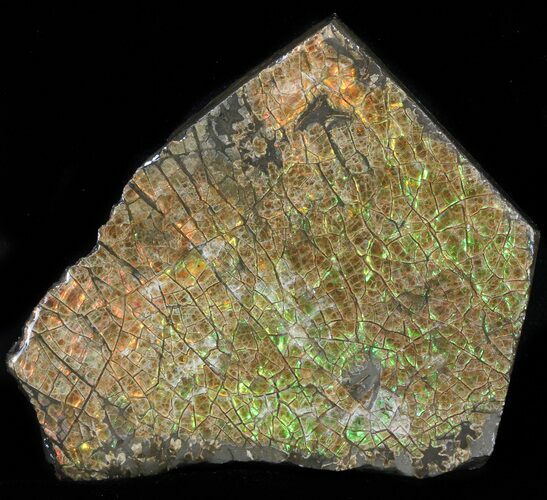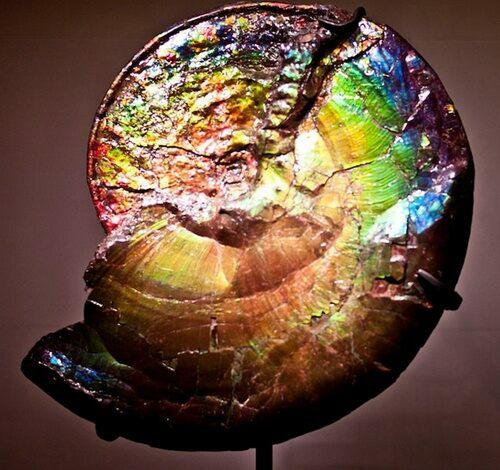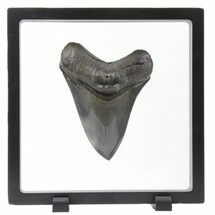This Specimen has been sold.
2.6" Brilliant Iridescent Ammolite - Cyber Monday Deal!
This is a 2.7" wide section of brilliant, iridescent ammolite from the Bear Paw Shale of Alberta, Canada. It has wonderful, green, red, orange and yellow hues that shine differently depending on what angle the specimen is viewed from. A really beautiful piece.
Ammolite is an opal-like, gemstone found found primarily in Alberta, Canada. It is made of the fossilized shells of ammonites, which in turn are composed primarily of aragonite, the same mineral contained in nacre, with a microstructure inherited from the shell. In 1981, ammolite was given official gemstone status by the World Jewellery Confederation (CIBJO)
An iridescent opal-like play of color is shown in fine specimens, mostly in shades of green and red; all the spectral colors are possible, however. The iridescence is due to the microstructure of the aragonite: unlike most other gems, whose colors come from light absorption, the iridescent color of ammolite comes from interference with the light that rebounds from stacked layers of thin platelets that make up the aragonite. The thicker the layers, the more reds and greens are produced; the thinner the layers, the more blues and violets predominate. Reds and greens are the most commonly seen colors, owing to the greater fragility of the finer layers responsible for the blues.
Ammolite is an opal-like, gemstone found found primarily in Alberta, Canada. It is made of the fossilized shells of ammonites, which in turn are composed primarily of aragonite, the same mineral contained in nacre, with a microstructure inherited from the shell. In 1981, ammolite was given official gemstone status by the World Jewellery Confederation (CIBJO)
An iridescent opal-like play of color is shown in fine specimens, mostly in shades of green and red; all the spectral colors are possible, however. The iridescence is due to the microstructure of the aragonite: unlike most other gems, whose colors come from light absorption, the iridescent color of ammolite comes from interference with the light that rebounds from stacked layers of thin platelets that make up the aragonite. The thicker the layers, the more reds and greens are produced; the thinner the layers, the more blues and violets predominate. Reds and greens are the most commonly seen colors, owing to the greater fragility of the finer layers responsible for the blues.
SPECIES
Placenticeras
LOCATION
Southern Alberta, Canada
FORMATION
Bearpaw Formation
SIZE
2.6x2.2" about 1/4" thick
CATEGORY
ITEM
#40159
We guarantee the authenticity of all of our specimens.
 Reviews
Reviews













